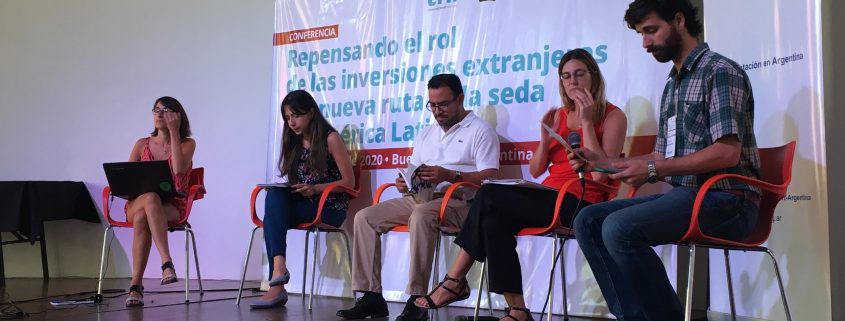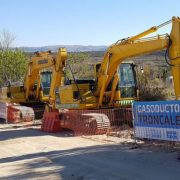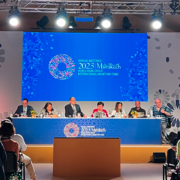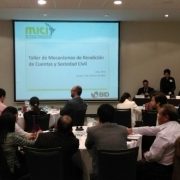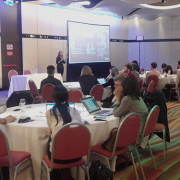We were present at the Conference: ‘Rethinking the role of foreign investment and the New Silk Road in Latin America’
On March 2-3, the conference on foreign investment and the New Silk Road in Latin America and the Caribbean was held on the campus of the National University of San Martín in Buenos Aires.
“Below, we offer a google translate version of the original article in Spanish. This translation may not be accurate but serves as a general presentation of the article. For more accurate information, please switch to the Spanish version of the website. In addition, feel free to directly contact in English the person mentioned at the bottom of this article with regards to this topic”.
On March 2 and 3, the conference ‘Rethinking the role of foreign investment and the New Silk Road in Latin America and the Caribbean‘ organized by Transnational was held on the campus of the National University of San Martín (UNSAM). Institute (TNI) and UNSAM.
Both days, exponents participated not only from Argentina, but also the presence of specialists from Chile, Bolivia, Brazil, Mexico and Peru. On the first day of the conference, issues such as the role of foreign direct investment (FDI) for sustainable development in the current context of climate crisis were addressed; FDI in Latin America, including Chinese investments and the key sectors in which they are located. In addition, the potential implications of the region for the New Silk Road were discussed.
As the main conclusions of the first day, we can mention China’s need for extractive primary resources, the main reason for its relationship with Latin America and the Caribbean. The transfer of Foreign Direct Investment (FDI) of environmental impacts to the countries of the region. Finally, the continued violation of Chinese investments to Convention 169 of the International Labor Organization (ILO) on the right to free, prior and informed consultation for indigenous peoples.
On the other hand, on the second day there was a greater exchange of opinions between the speakers and the public present, respecting the topics agreed in the Program, such as Chinese FDI in the region, specifically the characteristics, impacts and challenges they face. Latin American countries, with emphasis on Argentina, Brazil, Mexico, Bolivia and Chile. Lastly, the topics that generated the greatest exchange of opinions were the relationship FDI-sustainable development models and, on the other hand, what is the type of FDI that we want, that is, if it can contribute to national development taking into account ecological sustainability .
Regarding the second day, the questions that had great force were those regarding which pattern China follows in the different countries of the region. Thus, issues such as the growing demand for lithium by China, its association with companies from other states to obtain their technology (technology transfer), the expansion of bi-oceanic projects, hydroelectric dam projects and the increase in ecoterritorial conflicts, due to mention some.
In our region, in recent decades, Chinese investments have grown exponentially, exceeding investments by traditional multilateral organizations (such as the World Bank and IDB). With these investments comes the lack of controls, environmental and social impacts, and human rights violations. However, the asymmetric relationship that exists between the region and the Asian country cannot be overlooked, reproducing the classic unequal patterns of relationships that have characterized Latin America and the Caribbean, formerly with the United States and Europe, now with the People’s Republic from China.
Consequently, it is important to create greater articulation between civil society, academia, affected communities and all those interested parties to demand a more egalitarian form of relationship and compliance with environmental and social standards, absent so far. It is within this framework that our participation in the conference and Fundeps’ interest in strengthening ties with both national and international academic institutions that address the issue of Chinese investment and its impact on the environment and human rights are framed.
More information
- Overview of Chinese investments in Latin America: The cases of Argentina, Colombia, Mexico and Peru – GREFI
- China-Argentina relations under Macri administration: do we change? – Fundeps
- Projects with Chinese financing in Argentina: 8 emblematic cases – Fundeps
- Analysis of the China China-Argentina Comprehensive Five-Year Plan for Cooperation in Infrastructure (2017-2021) ’- Fundeps
- AIIB’s role in the New Green Silk Road – Fundeps
Author
- Sofia Brocanelli
Contact
- Gonzalo Roza, gon.roza@fundeps.org

